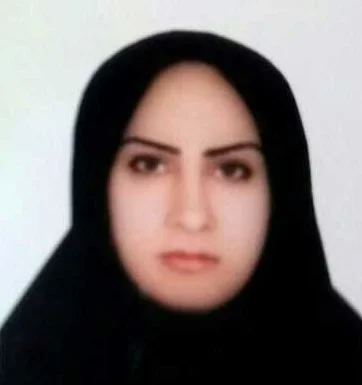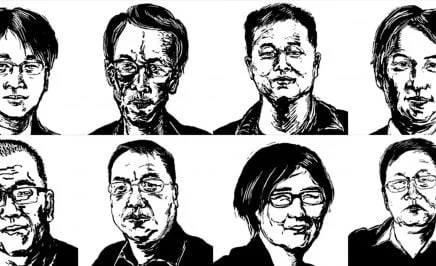Imagine, if you can … You’re a 15-year-old girl. You’re married – you saw it as your way out of poverty, a chance for a better life. Instead, you’re beaten. Time and time again.

You implore your husband to free you, to agree to a divorce. But instead he’s more abusive. And his brother takes to raping you, repeatedly. Imagine, your brother-in-law, in a fit of jealousy, kills your husband. But you, as a woman, are made to pay the ultimate price.
After three weeks locked in a police cell, regularly beaten by officers – your body black and blue beyond repair and your last remnants of hope long gone – you confess to your husband’s murder.
Your brother-in-law had told you to take the fall, as, by law, he has the power as a relative to pardon you. Instead, your country, in retribution, takes your life.
This is one woman’s reality, as you read this, sitting on death row in Iran awaiting an execution that may happen at any moment.
Zeinab Sekaanvand Lokran’s story isn’t, unfortunately, unique.
Take action for Zeinab
Li Yan’s story
Not so long ago, in China, Li Yan found herself in a similar nightmare – as her husband’s regular punching bag and his ashtray (her stubbed out cigarettes on her face and legs). On cold nights he locked her outside, like an animal.
Li Yan sought help from the police, her local justice department, the hospital and a branch of the government-run women’s federation. No one helped. Instead they told her to just “bear it.”
Li Yan’s torment peaked on a November night in 2010 when her husband, drunk, struck her with an air rifle and threatened to kill her. With her life at risk, Li managed to get a hold of the rifle and strike her husband on the head, killing him. She was sentenced to death.
However, because of the power of the people, her story took a more positive turn. Her death sentence sparked an outcry within China and around the world.
In 2015, in a landmark move, China commuted Li’s death sentence, reducing it to a prison term. “Justified defence” was introduced in family violence cases, stating that such abuse was a mitigating factor.
Every time a woman is abused in custody, raped by a family member, trafficked or forced into marriage, the unequal power-relationship between men and women is bolstered
The Chinese government also issued new guidelines on family violence cases, including recommendations on sentencing for survivors who commit crimes against their abuser, providing privacy protection for survivors and allowing protection orders against abusers.
Li Yan’s case had not only highlighted the Chinese government’s failure to take violence in the home seriously, but governments across the world. Globally, one in three women, just like Zeinab and Li Yan, experience physical or sexual violence, mostly by an intimate partner.
Global culture of violence
These cases are rooted in a global culture that denies women equal rights with men, and turns a blind eye to violence that’s happening in the home. Violence against women feeds off this inequality and reinforces it.
Every time a woman is abused in custody, raped by a family member or soldier as a ‘spoil of war’, trafficked, forced into marriage or terrorised by violence in the home, this unequal power-relationship between men and women is bolstered. The torture and physical and mental abuse of women won’t end until the discrimination ends.
For this to happen, we must speak out. For many, such violence remains invisible to the outside world – behind the home’s closed doors.
Globally, one in three women, just like Zeinab and Li Yan, experience physical or sexual violence, mostly by an intimate partner.
We must insist that governments ensure all forms of violence are a criminal offence and that no one is beyond conviction. We must campaign to end discrimination against women in the justice system and support comprehensive services for anyone at risk of violence so they have somewhere safe to go to.
We must challenge tolerance of all types of violence at the community level, change attitudes and ensure respect and gender equality is at the heart of the solution.
And we must persist until we have a world where women can walk the streets at night without fear, and live in safety and dignity in their own homes.
The consequences
For women who experience violence and torture, the effects are physically and psychologically devastating.
An official medical examination following Zeinab’s arrest found her to have a depressive disorder (with symptoms such as insomnia, fatigue, feelings of hopelessness and low self-esteem).
During her incarceration, Zeinab married a fellow prisoner and became pregnant. Last month, tragically, she gave birth to a stillborn baby. Doctors said her baby had died in her womb due to shock. She’s not been allowed to see a doctor for postnatal care or psychological support.
That’s Zeinab’s story today. In this moment. And you can help.
You have the power to change how it ends. Tens of thousands of Australians were part of the wave that saw Li Yan live, and we can do the same for Zeinab. Please act now.
Blog by Hannah Harborow, Campaigns Manager, Amnesty International Australia





